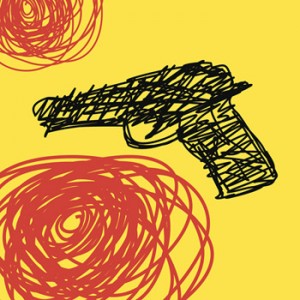By Kristin Battista-Frazee, News contributor
It’s an all too familiar story: Another mass shooting occurs and innocent lives are lost. In the aftermath, the media reports, yet again, that the shooter has, or had, a mental illness.
 We feel all at once sadness, grief and outrage. And the headlines make it easy to believe people with mental illness are violent. But in fact, the causes of gun violence and how to stop it are much more complex issues.
We feel all at once sadness, grief and outrage. And the headlines make it easy to believe people with mental illness are violent. But in fact, the causes of gun violence and how to stop it are much more complex issues.
Social workers solve complex problems every day and want to play a role in regulating access to guns. But not at the expense of those with mental illness, who are often scapegoats in the wake of gun violence tragedies.
At the same time, there are admittedly certain circumstances where mental illness leads to violence, and the individual involved should not have access to firearms. How social workers navigate this tricky debate to enact real change will make a difference.
“The majority of violence is committed by people who do not have a diagnosis, however there are certain incidences when this does occur. When it does, there is big publicity pulled to this issue (of gun violence and mental health),” said Will Francis, the government relations director for NASW’s Texas Chapter. “We need to keep a conversation going beyond the response to gun violence, and have two distinct and separate discussions around supports for mental health and gun control.”
Research points away from mental illness alone as a factor in gun violence, despite the opinions of some to the contrary. According to statistics from the Centers for Disease Control, of the 33,169 people in the U.S. who died by gun violence in 2013, 62 percent (21,175) were suicides. An American Journal of Public Health article, “Mental Illness, Mass Shootings, and the Politics of American Firearms,” by Jonathan M. Metzl and Kenneth T. MacLeish, says only about 4 percent of all violence in the U.S. can be attributed to people diagnosed with a mental illness.
Gun-rights advocates, at times, have mischaracterized the realities of how mental illness influences gun violence. In 2012, the National Rifle Association came out forcefully after the Newtown, Conn., tragedy — calling people with mental illness “monsters”.
NRA spokesman Lars Dalseide said, “Comments on individual cases should not be applied to a group as a whole,” when he was asked for this article if past statements by the NRA contributed to stigmatizing those with mental illness.
Gun-regulation advocates, on the other hand, view comments like this as a distraction from focusing on real gun-access issues. The Coalition to Stop Gun Violence broadens the conversation beyond mental health, and highlights many predictors of gun violence and dangerous behavior — and is more aligned with the thinking in the mental health community.
In 2013, The Consortium for Risk-Based Fire Arms Policy’s Evidence Based Approach for State Policy Report pointed to several key risk factors associated with firearm violence, including violent crime, domestic violence, and alcohol and substance use.
“Our approach is to look at all of these other risk factors so we don’t start classifying dangerousness on the basis of a mental illness diagnosis alone,” said Josh Horwitz, executive director of the Educational Fund to Stop Gun Violence.
This organization also advocates for laws such as the California Gun Violence Restraining Order, which allows law enforcement to remove guns from someone’s possession when violence seems likely and not just imminent.
From the March 2016 NASW News. Read the full story here.



